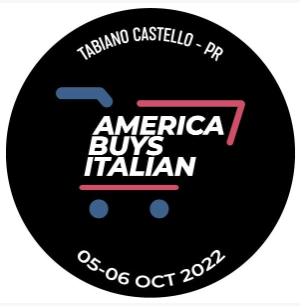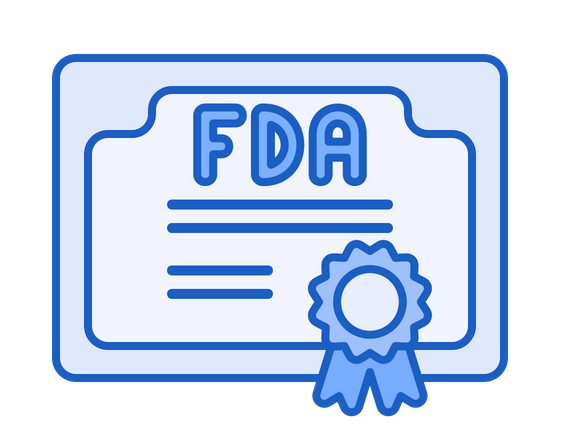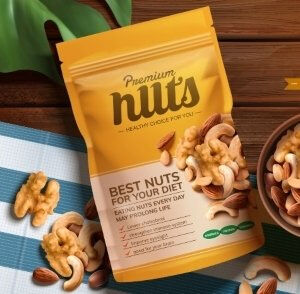Distribution trends in the American market
American market branding
Tre tendenze del confezionamento prodotti Food and Beverage da cui prendere ispirazione per vendere di più negli Stati Uniti nel 2024
 (+1) 718-5225575
(+1) 718-5225575
Tre tendenze del confezionamento prodotti Food and Beverage da cui prendere ispirazione per vendere di più negli Stati Uniti nel 2024

Discover the updated data on the performance of U.S. supermarkets and food spending by consumers in the U.S.!

The impact of demographic trends on U.S. food sales: Strategies for exporting food products to the U.S.

FDA food labeling in the U.S.: Nutrition labeling plays a key role in the U.S. consumer's purchasing decisions

Why Gen Z started using TikTok instead of Google?

Selling in the United States: Revising labels to be FDA and Proposition 65 compliant

ExportUSA's tips on how to invest in U.S. trade shows to succeed in the U.S. market

Food additives: FDA announces restrictions on the use of certain phthalates in food packaging for the U.S. market

Once again this year, the United States proves to be the best market in which to sell ice cream: here are the latest figures on industry trends

New FDA allergen regulations for exporting food products to the U.S.

Kraft Heinz takes inspiration from culinary trends on TikTok to innovate in the ready-made sauces segment: new Dip & Crunch products are born

Waterdrop, the micro-drink brand reinventing the conventional way of drinking water, lands in the U.S. and gets a $70 million funding round

In the US, 2022 will be the year of the hard seltzer
Today, catering to the nostalgic tastes of ethnic groups in America can justify premium pricing and enhance brand perception in the U.S. market

A Canadian company has launched a beer for dogs, responding to the needs of American consumers

In the United States, the pandemic accelerated the sale of plant-based meat and cheese: the key lies in targeting and storytelling

For those who want to open a coffee shop in the United States, or even for those who just want to export their products to America, it is important to keep in mind the best market trends and niches in order to secure a good positioning. For example, today American consumers are looking towards the drinks market for ways to ensure good health

FSMA Certification - ExportUSA provides ALL services for compliance with FSMA regulations in partnership with a food certification company authorized by the FDA

The validation of autoclaves is a step in the sterilization procedure of vacuum-packed food products and is required by the FDA to import food products into the United States

Regulations and Certification of Contact Substances for the United States

Differences between the HACCP plan and the Food Safety Plan [HARPC plan] required by the FDA under the FSMA legislation on the safety of food products to be exported to the United States of America

FCE [Food Canning Establishment] registration with the FDA is required to export to the United States long shelf-life food specialties, such as tuna in oil, peeled tomatoes, preserves and canned products

ExportUSA offers a consultancy service both for obtaining the necessary permits for the import of cheese into the United States, and for the search for specialized distributors to sell cheese in the US

ExportUSA offers all the services necessary to comply with the new FSMA regulation: from technical analysis and consultancy services, to process and procedure implementation services

The FDA has recently issued new regulations that involve the radical change of the nutritional tables of food products on sale in the United States of America

The specialized partners of ExportUSA offer a combination of financial management and strategic family asset investment planning services

A new ExportUSA service to make preparation of a food safety plan and drafting of a HARPC manual easier, faster and cheaper

Our specialized advice on the FDA procedures goes far beyond simply filling out the forms required to export food products into the United States, as it also includes reviewing critical elements of the manufacturing processes, reviewing supporting documentation, such as Health Authority [ASL] certificates and the request for import permits

Since May 2017, American importers have been obliged to verify that the producers from whom they import are compliant with the FSMA

ExportUSA's services include obtaining US import permits. We take care of everything: from the preparation of the application, to the management of the relationship with the USDA and the annual renewal of the import permit

Since 2010, it is mandatory to renew the FDA registration to import food products into the United States of America. The FDA registration must be renewed every two years. The FDA number does not change after renewal

We prepare the HARPC manual for you to be able to export food products to America
Reliable logistics for shipping frozen and refrigerated food products to the U.S. with full compliance and cold chain integrity

ExportUSA is now able to certify sausage production facilities to allow foreign producers to import ham, salami and mortadella to the United States of America
Learn how market research can guide pricing, packaging, and positioning strategies for food products in the competitive U.S. market

The Millennials in the USA rank as the world’s most avid consumers of snacks and are the driving force behind the innovation in the snack industry
Impact of new purchasing trends on specialty food sales in the U.S.
Home meal delivery and meal kit services are booming in the U.S., revolutionizing consumer habits and offering new opportunities for businesses
Consumers in the U.S. are increasingly opting for ready and semi-ready meals, driving a surge in sales and opening new market opportunities
Learn how meal kits are reshaping dining habits in the U.S. and why foreign producers should take advantage of this trend

Organic, non-GMO, all-natural, low-carb, and gluten-free are essential characteristics for new food products to succeed among American Millennials

Explore how Millennials in the U.S. are shifting towards organic and healthy food choices, reshaping the American food market.

Discover how Millennials in the U.S. are shifting from traditional supermarkets to specialty stores, seeking quality and authenticity in their food choices.

The giants of the food industry lose shares to the benefit of small businesses